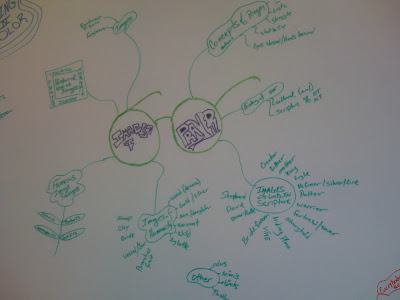 Over the past several years, the topic of spiritual formation and spiritual practices (or disciplines) have begun to get more and more air-time. A number of books deal with the ideal of being conformed into the image of Christ, while others leverage into to the practices themselves. No single volume could possibly begin to even scratch the surface.
Over the past several years, the topic of spiritual formation and spiritual practices (or disciplines) have begun to get more and more air-time. A number of books deal with the ideal of being conformed into the image of Christ, while others leverage into to the practices themselves. No single volume could possibly begin to even scratch the surface.Thomas Nelson Publishing, in this series Ancient Practices Series, allot space and time to deal more comprehensively with not only the premise behind engaging spiritual practices, but also looking more in depth at seven of these ancient practices (fixed-hour prayer, fasting, sabbath, the sacred meal, pilgrimage, observance of sacred seasons and giving). In the first volume, Finding Our Way Again: The Return of the Ancient Practices, Brain McLaren begins to masterfully approach the role of spiritual practices within the process of one’s personal transformation with fresh perspective. If you’re new to the subject of engaging spiritual practices/disciplines, this book offers a great introduction. If you’ve read the classics such as Celebration of Discipline, Spirit of the Disciplines, The Life You’ve Always Wanted, etc, this book offers much more than a mere rehashing of old rhetoric. I look forward to working through this entire series this upcoming year.
*I received this book for free in exchange for my unbiased review through the Thomas Nelson BookSneeze Program.






















